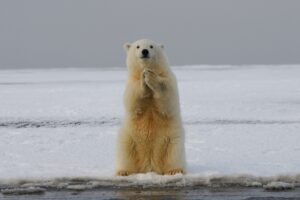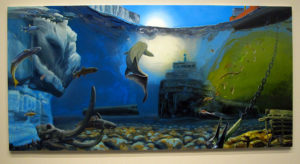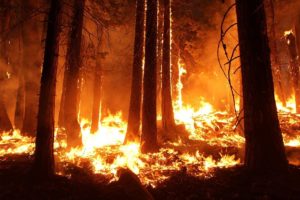The Weight of Inevitability
What does it mean for something to be ‘inevitable’? We know that the sun will rise each day and set each night (until millions of years from now when it inevitably doesn’t). We know that if you’re working in a group project, there’ll inevitably be someone who doesn’t pull their weight. We know that scientists are making predictions that sea ice will retreat to a small fringe by 2040, polar bear populations will decline by more than 30% in the next 35-40 years, and our world’s temperature will increase by more than 2° Celsius.








